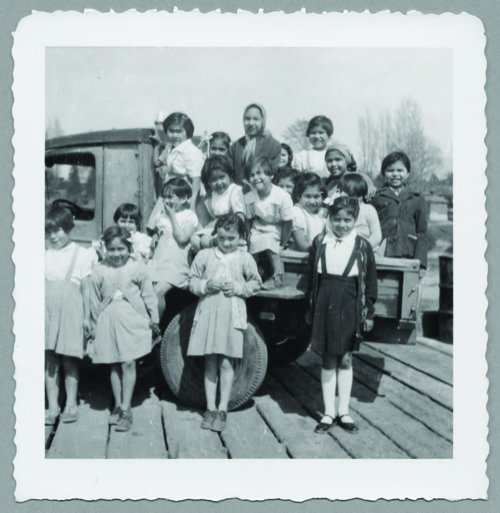Reconcilation
For reconciliation to flourish in Canada, it must be rooted in truth and justice.
One truth is that residential school survivors, their families and communities still struggle to overcome the intergenerational legacies left in the wake of these schools.
Another truth is that despite the destructive impacts of residential schools, Indigenous nations across Canada are reclaiming and revitalizing their histories, cultures, languages, laws and governance systems.
Another truth is that the relationship between Indigenous and non-Indigenous Canadians is damaged. Treaties have been broken, children have been taken, and traditional lands have been lost. Reconciling these truths to create a more just, respectful and inclusive Canada is at the heart of Reconciliation.
The National Centre for Truth and Reconciliation was established because survivors had a vision. They wanted to create a place of learning and dialogue where the truths of their residential school experiences were honoured and kept safe for future generations.
They want their families, communities and all of Canada to learn from these hard lessons of the past so they will not be repeated. They want to share the wisdom of the elders and traditional knowledge keepers who have so much to teach their own young people and all Canadians about how to create just and peaceful relationships amongst diverse peoples.
Reconciliation is not only about the past; it is about the future that Canadians will forge together on these lands we now share.
Canada’s Truth and Reconciliation Commission published its final reports in late 2015. Now the National Centre for Truth and Reconciliation holds the memories of survivors and their hopes for the future. The following is from the NCTR web site.
“Reconciliation means working together to correct the legacy of past injustice.”– Nelson Mandela
“Reconciliation is about ensuring that everything we do today is aimed at that high standard of restoring balance in the relationship between Aboriginal and non- Aboriginal people.”– Justice Murray Sinclair, chair, Truth and Reconciliation Commission of Canada
“To reconcile is to weave a stronger and more vibrant social fabric, based on the unique and diverse strengths of Canadians and their communities.” – Chief Robert Joseph, ambassador for Reconciliation Canada, TRC honorary witness and residential school survivor
Residential schools were set up throughout BC. There were 18 of them. Click HERE for more information.
A National Residential School Crisis Line has been set up to provide support to former students. This 24-Hour Crisis Line can be accessed at: 1-866-925-4419.




